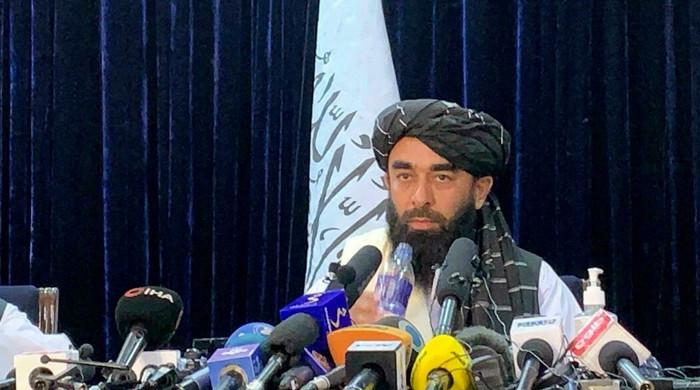Taliban
The Afghan Taliban’s spokesperson, Zabihullah Mujahid, has recently addressed the ongoing concerns surrounding the Tehreek-e-Taliban Pakistan (TTP), framing it as an internal matter for Pakistan.
However, in a notable development, Mujahid has extended an offer for mediation, should Islamabad express a desire for such involvement.
In an interview, Mujahid clarified the Taliban’s position, stating, “We wish to maintain good relations with Pakistan, a neighboring country with whom we share a language, religion, and extensive cultural ties.”
This statement underscores the Taliban’s intention to preserve diplomatic and peaceful relations with Pakistan, a nation with which they have significant historical and cultural connections.
Mujahid also emphasized the Taliban’s commitment to ensuring that Afghan soil is not used as a base for any militant activities against Pakistan or other nations. He stressed, “Afghanistan does not allow anyone to wage war from its territory. If Pakistan has any concerns, they should share them with us, but levelling accusations through the media only fosters mistrust.”
His remarks suggest a call for direct and private communication between the two nations rather than public accusations, which he believes could lead to further distrust.
Regarding the TTP’s activities, which have been a point of significant tension between Afghanistan and Pakistan, Mujahid acknowledged past attempts at mediation and confirmed the Taliban’s willingness to facilitate dialogue again if necessary. “If Pakistan wishes, we can play a mediatory role. However, we do not intervene unless both parties express a genuine desire for resolution,” he said.
This offer highlights the Taliban’s potential role as a mediator, but with the caveat that both parties must be committed to finding a peaceful solution.
The interview also covered the recent border clashes at the Torkham border, a critical crossing point between Afghanistan and Pakistan. Mujahid urged both sides to seek dialogue and political solutions to resolve these disputes.
He particularly highlighted the economic impact of these border closures, noting, “We have tried to keep trade and border issues separate from politics, and we hope Pakistan does the same.” This statement reflects the Taliban’s concern about the economic repercussions of political disputes, which they believe should not interfere with trade and commerce that benefit both nations.
Since the Taliban’s return to power in Kabul in August 2021, there has been a noticeable increase in terrorist activities inside Pakistan, much to the concern of Islamabad.
The first five months of the current year saw an 83% rise in terrorist attacks, prompting Pakistani authorities to launch a renewed campaign against militant groups.
This surge in violence has strained relations between Pakistan and Afghanistan, particularly given the Taliban’s assurances that Afghan soil would not be used for cross-border militancy.
Mujahid’s remarks indicate the Taliban’s awareness of the rising tensions and their potential interest in playing a role in de-escalating the situation.
His call for direct communication and his offer of mediation suggest that the Taliban is positioning itself as a potential peacemaker in the region, though it remains to be seen how Pakistan will respond to this overture.
The ongoing situation highlights the complex dynamics between the two neighboring countries, where shared cultural ties are juxtaposed with political and security challenges that require careful navigation to avoid further escalation.


